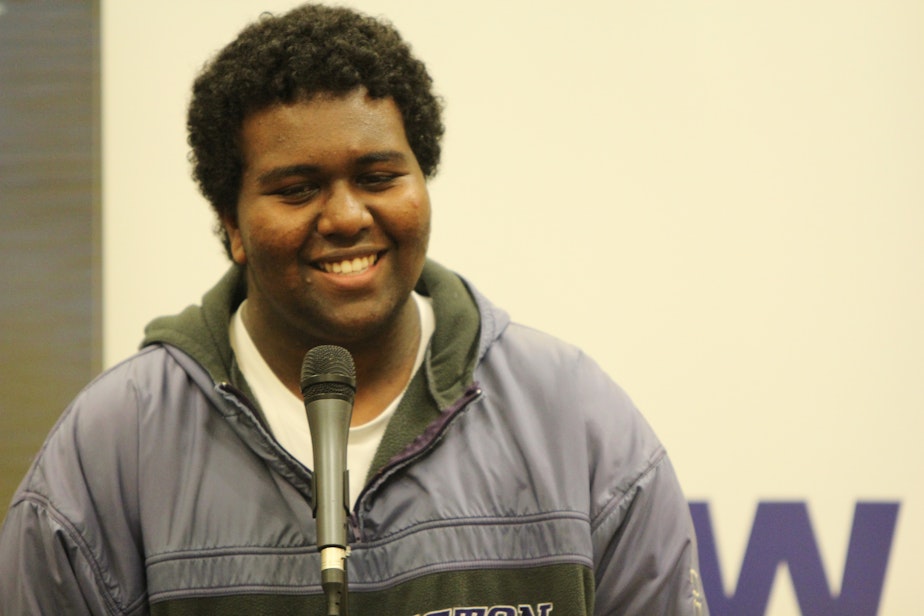Finding Peace: From Ethiopian Refugee To United States Citizen

Nigisti Hailemariam has been in the United States for over 20 years. She has two kids, a stable job, and a red Honda outside her three-bedroom apartment. But life wasn't always this peaceful for Nigisti. RadioActive youth producer Yafiet Bezabih tells the story of his mother's journey.
My mom was born in Tigray, the northern province of Ethiopia, which was disrupted by civil war in the 1980s. In her country, my mom was faced with bad choices: If she stayed in her native city she could die of an attack, and her only other choice was to join the local militia.
She decided to go somewhere else where she could work and live in peace. She managed to get help from friends and family to escape to Sudan. But her search for stability did not end there. I asked her what it was like in Sudan. "When I got there, inside the border, it was so rough," she said. "A lot of people — the Sudan police took them to jail because we don't look like Sudanese — we don't dress like them, we don't speak the language."
In Sudan, my mom lived in constant fear of being deported or jailed. Then one day she received a letter from her brother in America and made up her mind to do anything she could to get there. The immigration process took about three years; she had to maintain constant contact with her brother and obtain sponsorship with the help of the IRS. While she waited, she worked as a maid, cleaning and washing rich people's homes.
Finally my mom made it to the United States, arriving without any resources. The IRS helped her out with money for clothes, and she received food stamps. She went to classes to improve her English and used those skills to get her first job in Seattle. "It was really hard," she said of working as a hostess at Denny's. "I could not understand what they said, they don't understand what I say. But I was working hard, I didn't want them to fire me. I was doing whatever they told me."
She was working and living in peace for the first time in many years. She even saved a little money and bought her first car, a Mitsubishi. To my mom, the United States was a different world, without fear and anxiety. "When I got to America, I could walk safely. I had freedom and nobody was stopping me, asking where I'm from and taking me to jail," she told me.
Now my mom feels optimistic about her family's future in the United States. "I'm working hard now," she said, "and try my best to provide food for my kids, and my kids can have the life that I never had before as a child. As a young lady, I did not enjoy my teenage life because I was always just running from city to city, country to country. I'm happy and glad that I came to America. Finally this is my home, and my kids have a better life than I had."
When I asked her if she had anything else to add, my mom said this to me: "We go through all these things, and you guys have to appreciate what you have right now, and be a better person, a good person for yourself and for the country because this is your home. This is your country, and America is doing a lot of things for us and for you. I want you to be appreciative of what you have and be a better person."
This spring, KUOW hosted an after-school workshop for high school students in partnership with Rainier Scholars at the 2100 Building in South Seattle. It was part of our youth radio program, RadioActive. Five youth producers spent 10 weeks learning what it means to be a radio journalist. They created powerful stories about subjects close to their hearts. Listen to RadioActive stories here and stay up-to-date with RadioActive on Facebook.
